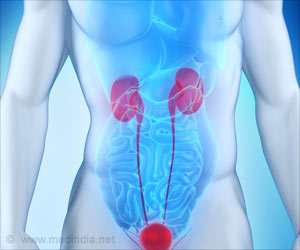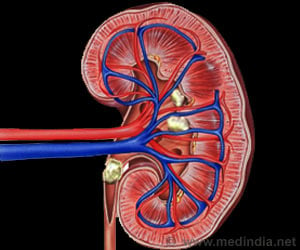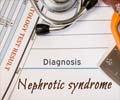- Adults from Israel appeared to be at an increased risk for end-stage renal disease (ESRD) if they suffered from kidney disease in childhood.
- The increased risk appears to be present even after apparent complete resolution of the condition in childhood.
- Children with childhood kidney disease should therefore be regularly monitored so that adequate measures can be taken to prevent ESRD.
- The adolescents who suffered from childhood kidney disease had normal kidney function and blood pressure measurement at the time of recruitment into the military.
- A total of 2490 recruits suffered from ESRD in later life. Individuals who had a kidney disease in childhood were at a higher risk of ESRD than those without a documented childhood kidney disease. The increased risk was despite the fact that the kidney problem had resolved in childhood. The ESRD also developed at an earlier age in these individuals.
- The increased risk for ESRD was independent of the type of childhood kidney condition. The childhood kidney diseases considered in the study included congenital malformations of the kidney and the urinary tract, infection (pyelonephritis or glomerular diseases.)
The accompanying editorial in the same journal points out a number of missing links in the study. These include details of the childhood kidney disease in terms of symptoms, the age of diagnosis of the kidney disease, treatment that the individuals underwent, or details of imaging studies to confirm the resolution of the kidney disease (if they were done). The study population mainly included Israeli Jewish men, and it is not clear if the results can be extrapolated to women or other populations.
About Childhood Kidney Diseases
Kidney diseases in children can affect the growth and development of the children. They can be acute, and if not resolved, can progress into a chronic form.Childhood kidney diseases can also be caused due to the following:
- Birth defects like kidney dysplasia or absent kidney, inherited conditions like polycystic kidney disease and Alport syndrome.
- Infections can also result in conditions like hemolytic uremic syndrome and acute post-streptococcal glomerulonephritis, nephrotic syndrome.
- Generalized disorders like diabetes and systemic lupus erythematosus or trauma to the kidney due to injury, dehydration, surgery or reflux of urine into the kidney.
References :
- Ingelfinger JR. A Disturbing Legacy of Childhood Kidney Disease. N Engl J Med 2018; 378:470-471. DOI: 10.1056/NEJMe1716499
- Calderon-Margalit R et al. History of Childhood Kidney Disease and Risk of Adult End-Stage Renal Disease. History of Childhood Kidney Disease and Risk of Adult End-Stage Renal Disease. N Engl J Med 2018; 378:428-438DOI: 10.1056/NEJMoa1700993
- Kidney Disease in Children - (https://www.niddk.nih.gov/health-information/kidney-disease/children)
- Caring for a Child with Kidney Disease - (https://www.niddk.nih.gov/health-information/kidney-disease/children/caring-child-kidney-disease)
Source-Medindia















